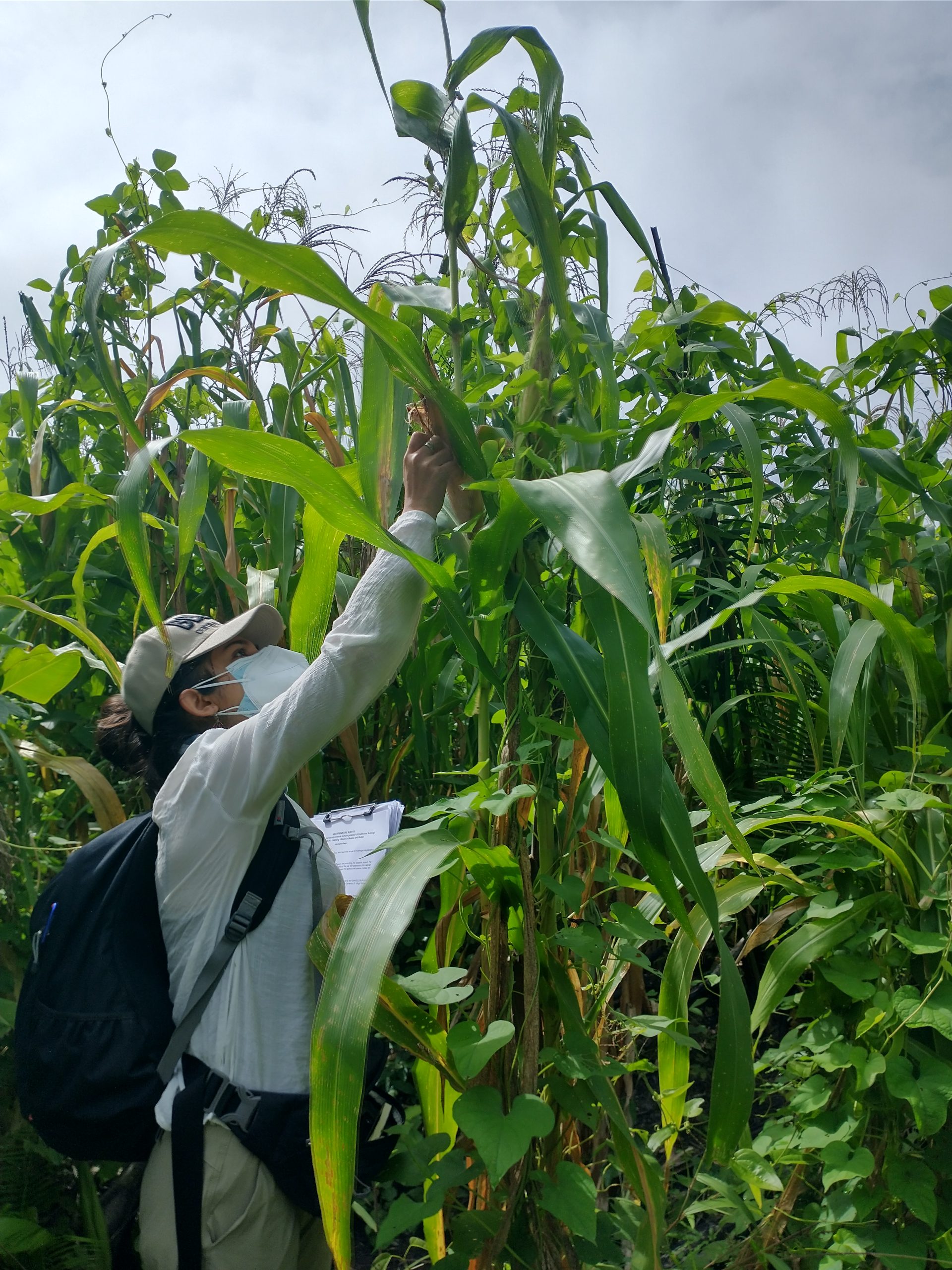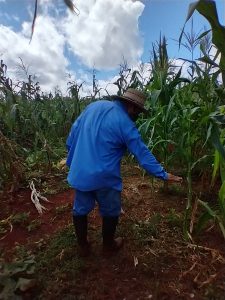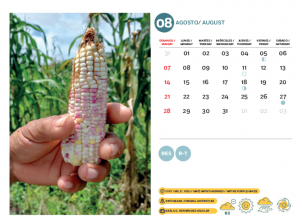
June 29, 2022, by lzzeb
Knowledge Systems in Disrupting Times: Reflections on transnational research in Mexico and Belize
A blog by Karla G. Hernandez-Aguilar
It has been almost three years since I started my PhD and just like everyone, I started with some idea of what this adventure was going to look like. However, two years ago the world suddenly changed, including the way of learning and the way of doing research. Throughout the last two years, I have had the opportunity to experience how knowledge systems have adapted and continue to adapt inside and outside of academia during challenging times. In this short blog I want to talk about what the Covid-19 era meant for international research and knowledge systems. Specifically, what did it mean for me when developing a project aimed at understanding how small-scale farmers are adapting to the effects of climate change; which indirectly, provided a good and interesting insight of how knowledge is adapted and how resilience is built in disrupting times.
In Mexico (my home country) and Belize where my project is being carried out, I experienced this adaptation and resilience process first-hand as I had to look for alternative ways to continue collecting data remotely during the first year of Covid-19. This went from seeking assistance of local people to sample plots, to providing online training for in-country partners to collect local weather data, to finding creative ways of collecting ethnographical data. The process in itself was not easy as it involved days and nights (because of time zone differences) of piloting and testing tools, paperwork processing, meetings with in-country partners, and endless planning.

Maya farmer, Nazario Poot explaining the advantages of using traditional knowledge for plant growth and productivity.
After restrictions were lifted in the UK, I was able to travel back again, first to one of my study areas and eventually to both. These fieldtrips were useful as I was able to witness how small-scale farmers adapted simultaneously to the impacts of Covid-19 and of climate change. The Yucatan Peninsula, the geographical region that I am studying, experienced a dual impact with a record number of hurricanes and storms hitting farms in the middle of a pandemic and bringing new challenges for the families which still depend on agriculture as a livelihood. These challenges allowed me to witness a shift in how knowledge is used and adapted. Most importantly, it was useful to acknowledge the similarities with science and academic knowledge adaptation going from face-to-face, to online, then to hybrid. In the case of agriculture, for example, a considerable number of people who lost their jobs turned to farming in order to survive the extreme costs of buying food during the pandemic, relying on the knowledge of long-time farmers to learn how to do agriculture for subsistence as well as on online resources. In other cases, many farmers who saw a significant rise in prices of agricultural supplies like fertilizers decided to reconsider the use of their own local/traditional knowledge to avoid losing their yields. Some others decided to combine local knowledge with technical or scientific knowledge. As a result, they started applying ancient techniques through experimenting on their land and successfully finding other ways to adapt to Covid-19 and to climate change.

Inside view of an agricultural calendar co-created with Maya farmers in Mexico and Belize for monitoring plots management and changes in weather patterns.
All this made me think about the importance of valuing and respecting knowledge systems that have been present in our research areas for millennia and the importance of understanding these knowledge systems when conducting research as this could be beneficial for both science and local knowledge holders. In my case, this disrupting time was challenging, but the outcome was very rewarding. I was able to co-create materials that highlight scientific and local knowledge used in transnational food systems from Mexico and Belize. This material was useful for me to collect data but is now also useful for farmers to record changes in their food systems and plan their future management strategies.
Main picture: Monitoring maize plots (milpas) in Belize, Central America.
No comments yet, fill out a comment to be the first

Leave a Reply